Publications
Articles, publications, books, tools and multimedia features from the U.S. Institute of Peace provide the latest news, analysis, research findings, practitioner guides and reports, all related to the conflict zones and issues that are at the center of the Institute’s work to prevent and reduce violent conflict.

Payton Knopf on the Stakes in Sudan
What’s at stake in Sudan as tense negotiations between the Transitional Military Council and protesters continue? “We need to see a swift transition to civilian-led rule,” says Payton Knopf. “Otherwise I’m afraid what will result is increased instability … or potentially a catastrophic failure of the state.”
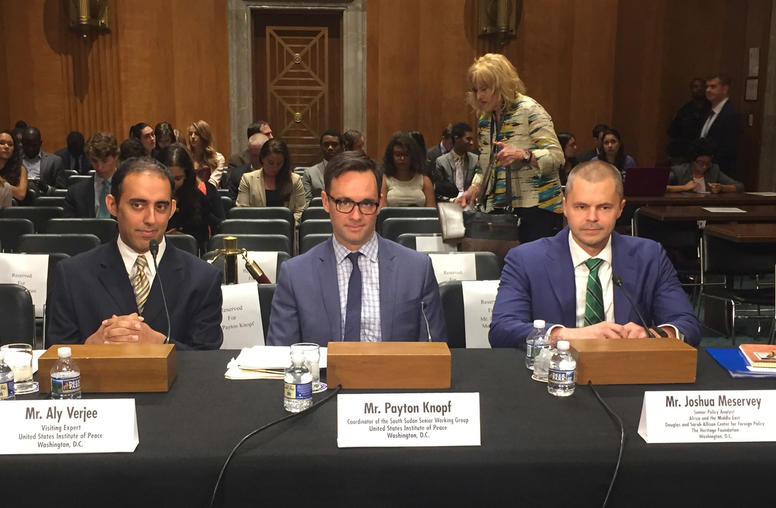
South Sudan’s Conflict and Famine: Payton Knopf Testimony
Payton Knopf provided testimony on South Sudan’s conflict and famine before the Senate Foreign Relations Subcommittee on Africa and Global Health Policy.

Payton Knopf on the Geopolitical Tensions in the Red Sea
Both the eastern and western shores of the Red Sea increasingly function as a common political and security arena in which the U.S. has significant interests, including the free flow of $700 billion in commerce and competition for influence from external powers like China and Iran. To address the region’s interlinked challenges requires a comprehensive U.S. strategy, says Payton Knopf.

Payton Knopf on What’s Ahead for the Horn of Africa in 2020
As Arab Gulf states and Turkey ramp up their competition for influence in the Horn of Africa, USIP’s Payton Knopf says the increased attention “has tended to exacerbate some of the internal tensions and political insecurities” in Ethiopia and Sudan—two states undergoing democratic transitions vital for regional stability.
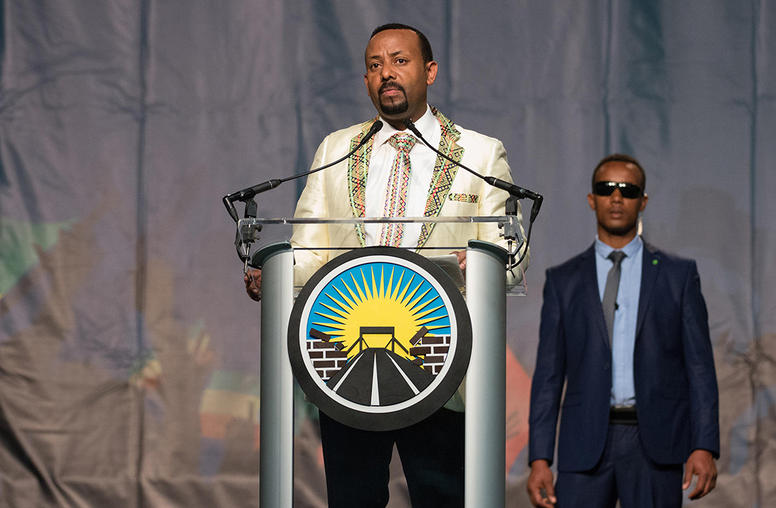
Ethiopia-Eritrea Peace Deal Brings Hope to Horn of Africa
Susan Stigant and Payton Knopf discuss what led Ethiopia and Eritrea to sign their recent peace deal, how it can improve the economic and humanitarian conditions in both countries, and the broader strategic and regional implications for the Horn of Africa and the Red Sea.
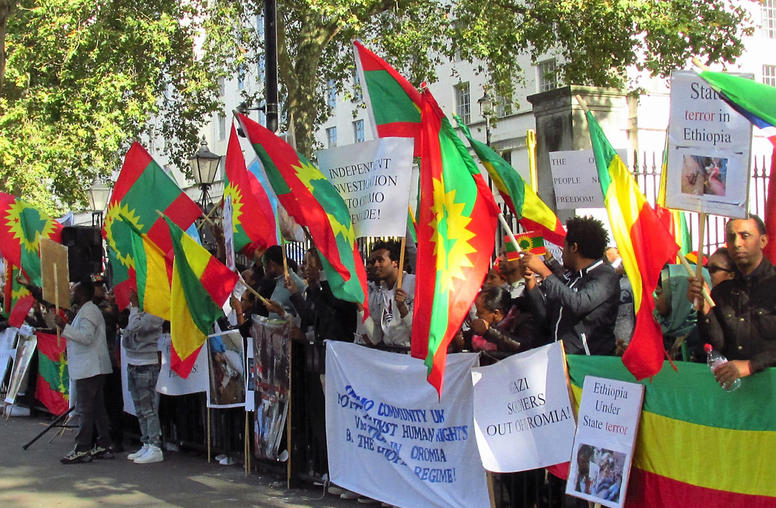
A Year of Change in Ethiopia
A year ago today, 42-year old reformist politician Abiy Ahmed became prime minister of Ethiopia. Abiy came to power during a deep political crisis with widespread grievances across this country of over 105 million people, and quickly began to enact political reforms. USIP’s Aly Verjee and Payton Knopf discuss Abiy’s year as prime minister and identify the challenges that lie ahead for eastern Africa’s most populous country.
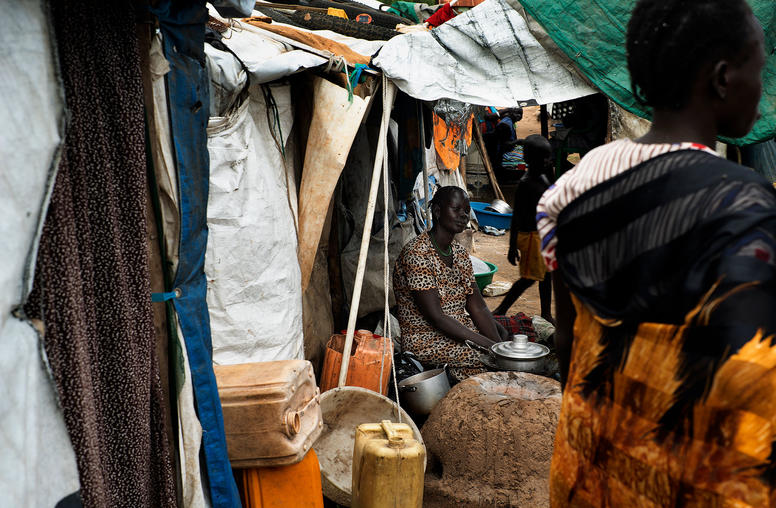
Will the Latest Deal Bring Peace in South Sudan?
On August 5, the warring parties in South Sudan signed an agreement which calls for the formation of another power-sharing government. The previous power-sharing government collapsed in July 2016, and the war has since spread throughout the country. USIP’s Aly Verjee and Payton Knopf discuss the developments that led to the deal, identify the agreement’s risks and deficiencies, and assess future prospects for the peace process.
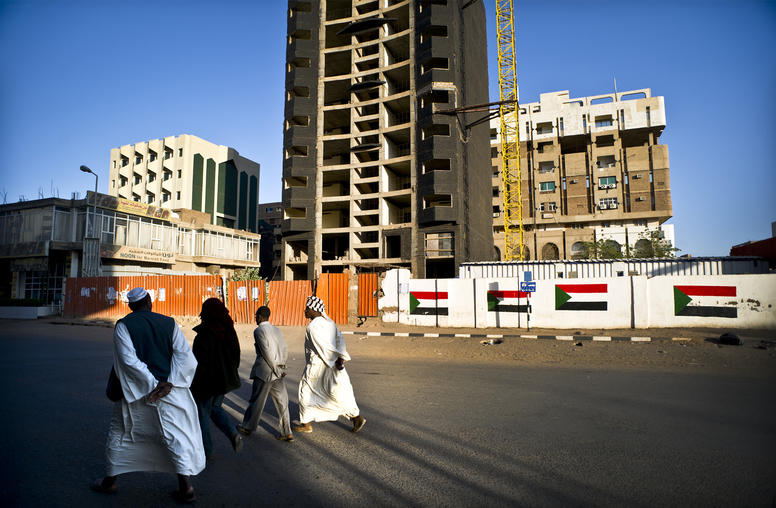
Reforming the U.S.-Sudan Relationship Requires a Regional Strategy
On November 7, the U.S. Department of State announced long-awaited plans outlining a path to better relations with Sudan, “designed to expand our bilateral cooperation, facilitate meaningful reforms to enhance stability in Sudan, and achieve further progress in a number of areas of longstanding concern.” USIP’s Aly Verjee and Payton Knopf discuss the initiative, and identify where broader U.S. regional objectives could cohere, including in the war in Yemen.
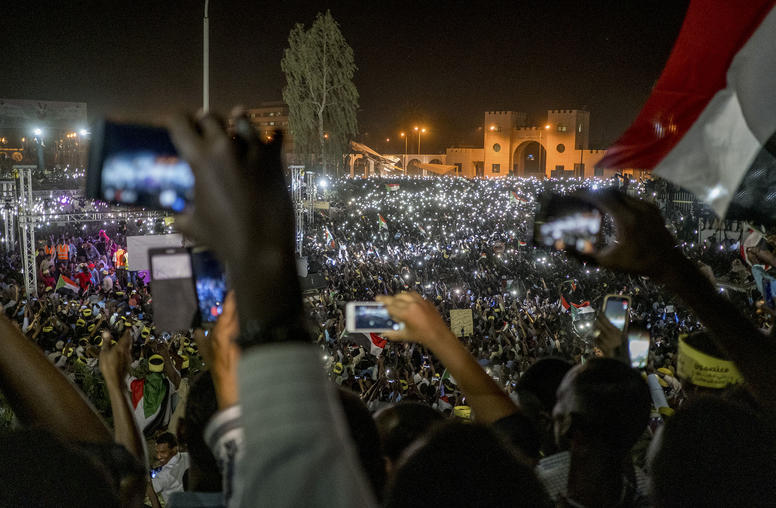
Sudan, One Year After Bashir
Dictator Omar al-Bashir, who ruled Sudan for nearly three decades, was overthrown in April 2019. After months of protests, negotiations led to a joint civilian-military transitional government to govern the country for a period of 39 months. However, Sudan’s political transition remains tenuous, and even before the coronavirus pandemic, the risks of failure were many. USIP’s Manal Taha, Payton Knopf, and Aly Verjee discuss the past year in Sudan and the need for further international support to shore up the transition.
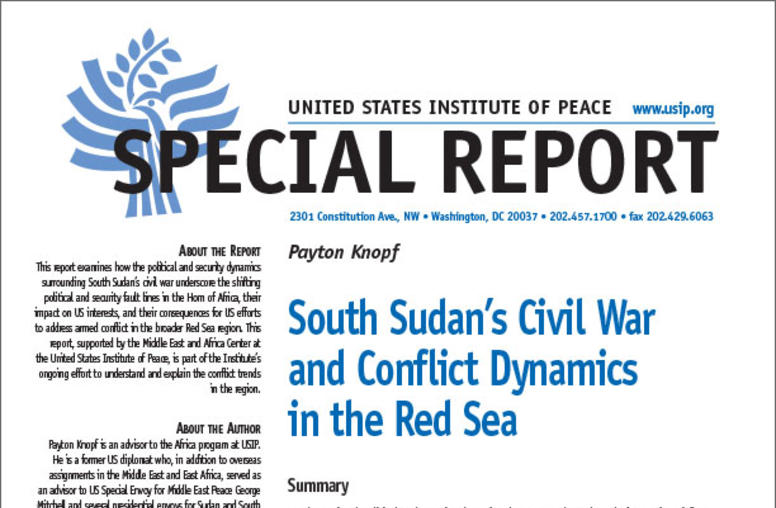
South Sudan’s Civil War and Conflict Dynamics in the Red Sea
The five-year-old civil war in South Sudan is an unparalleled humanitarian and security crisis, causing the largest exodus of refugees on the African continent since the Rwandan genocide and leaving over a third of the population displaced and two-thirds severely food insecure. Beyond the human toll on South Sudan’s long-suffering citizens, the country’s unraveling underscores the shifting political and security fault lines in the Horn of Africa. This Special Report surveys the region’s various interstate hostilities and intrastate conflicts and suggests ways the United States can reassert its influence to begin contributing meaningfully to the resolution of South Sudan’s civil war and conflicts in the greater Red Sea region.